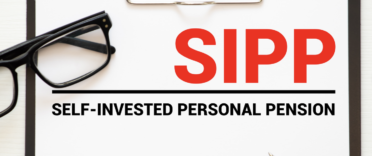 Choosing the best type of loan for you can be challenging. Comparing the interest rate, repayment period, terms and conditions as well as considering whether your credit history means you are likely to be accepted can be time-consuming. In this article we simplify the process, giving you a side-by-side comparison of the main types of loans, including the advantages and disadvantages, in order to help you decide which is best suited to your personal circumstances.
Choosing the best type of loan for you can be challenging. Comparing the interest rate, repayment period, terms and conditions as well as considering whether your credit history means you are likely to be accepted can be time-consuming. In this article we simplify the process, giving you a side-by-side comparison of the main types of loans, including the advantages and disadvantages, in order to help you decide which is best suited to your personal circumstances.
Which type of loan should I choose?
When you are weighing up which option to choose, it is worth asking yourself the following questions:
- How much do you need to borrow? You can generally borrow more as a secured loan and the monthly repayments will be smaller, although the term will be longer and you will ultimately pay more in interest. Most secured loans are over £10,000, although they can start from as little as £3,000. If you only need to borrow a relatively small amount, it may be worth using a credit card instead, which we discuss later in the article.
- How long do you need to pay it back? If you can afford to pay back a higher amount for a shorter amount of time, this is the best option as it will minimise the amount of interest you have to pay. If you can afford it, an unsecured loan presents less risk than a secured loan as you don't have to secure your home against the debt. However, you need to consider affordability as if you default on your higher monthly repayments it will affect your ability to borrow again in the future.
- Have you got impaired credit? If the answer is "yes", you may have to opt for a secured loan at a higher rate or, failing that, a guarantor loan if you can find someone willing to take it on with you.
What are the main types of loans?
| Type of loan | What is it and is it right for you? |
| Secured loan | A secured loan, which is also often known as a homeowner loan or second-charge mortgage, allows you to borrow money that is secured against an asset, which is typically your home. These types of loan generally have a lower interest rate, giving you lower monthly repayments. However, because the repayment term is usually much longer the total amount you repay (including interest) over the life of the product can be much higher. The other important factor is that you are at risk of losing your home if you are unable to keep up with the repayments, so make sure you can afford them. Read our article 'What is a secured loan?' for more information.
Take a look at our page 'The best secured loans & the rates in the UK' to find the best deals. |
| Unsecured loan (personal loan) | Unlike a secured loan, an unsecured loan – also known as a personal loan – does not require putting up anything as collateral. The application process is straightforward and you can get the money paid into your bank account quickly. However, the loan rates are generally much higher and you may not be able to borrow as much money. Moreover, the representative APR advertised is often not the figure you are actually offered as it is subject to status, meaning your monthly payments may be more than you first thought.
As you pay the loan back over a shorter period of time than with a secured loan, the total amount you have to repay in less as you don't incur as much interest, depending on the interest rate charged. However, you will need to budget carefully to make sure you can afford to make the monthly repayments as, although your home isn't at risk, you can harm your credit report if you are late making payments or incur defaults. This will make it much more difficult to access other forms of borrowing in the future. Read our article 'What is an unsecured loan?' for more information. You can compare the UK's top personal loans on our page 'The best personal loans'. |
| Guarantor loan | A guarantor loan is, as the name suggests, a personal loan where another adult - usually a family member - acts as a guarantor for the debt, meaning if you don't repay it, they will. It can be a good option for those who have a poor credit history or if you haven't got any credit history as you haven't previously had any credit agreements. It means you have the opportunity to borrow money even if you have previously been unsuccessful. You can read our article 'How can I get a loan with poor credit?' for more bad credit borrowing options. |
| Payday loan | Also called short-term loans, these offer smaller loans at extremely high rates, which means they are rarely the best option for anyone. Payday lenders are well known for charging extortionate rates of interest - anything up to 500% - and, in spite of them being subject to tighter regulation, there is still a real risk of people using them ending up with severe money problems. |
Pros and cons of the main types of loans
| Type of loan | Pros | Cons |
| Secured loan |
|
|
| Unsecured loan (personal loan) |
|
|
| Guarantor loan |
|
|
| Payday loan |
|
|
When you've decided which loan to go for, there is advice on the application process in our article 'How to apply for a loan'.
If a link has an * beside it this means that it is an affiliated link. If you go via the link Money to the Masses may receive a small fee which helps keep Money to the Masses free to use. But as you can clearly see this has in no way influenced this independent and balanced review of the product.




